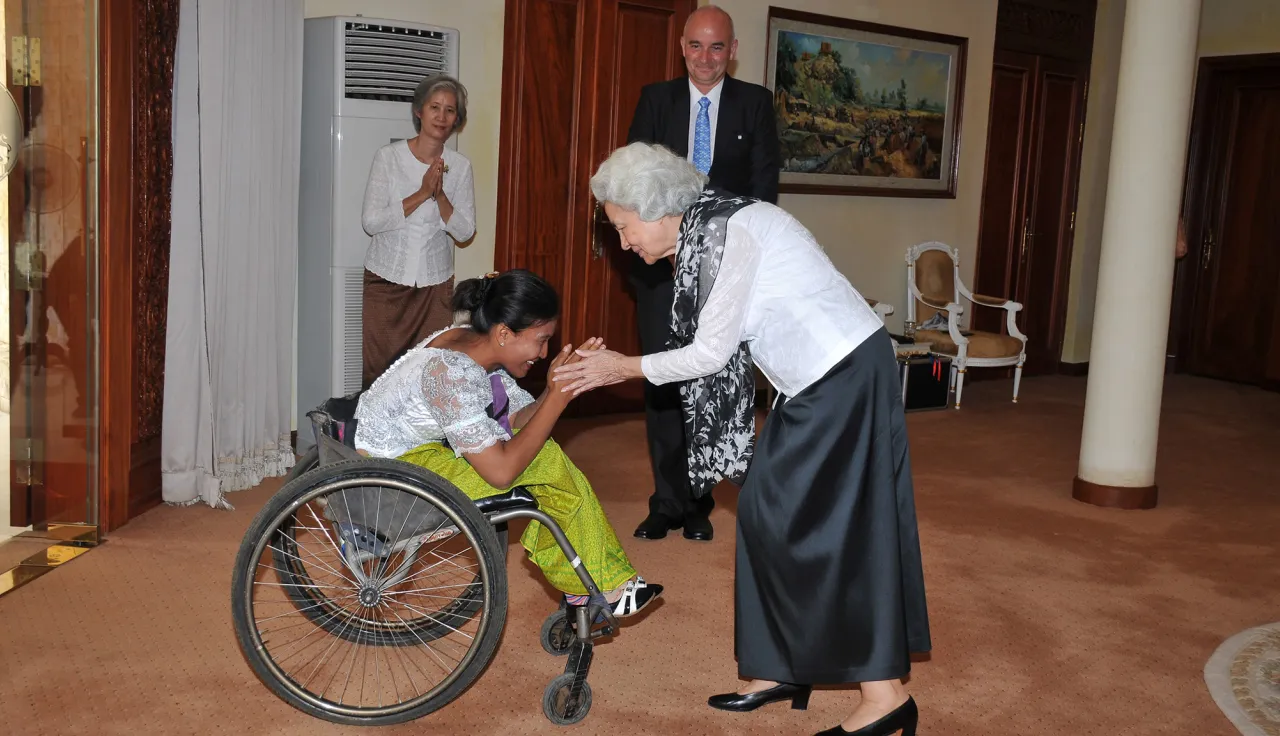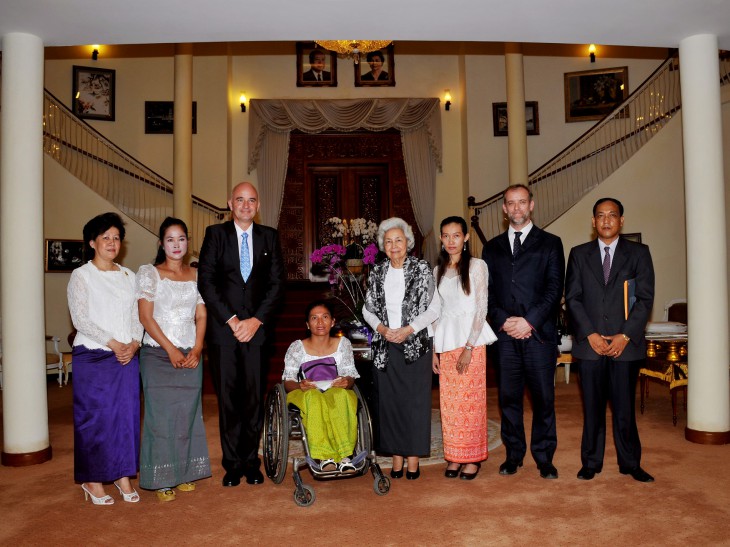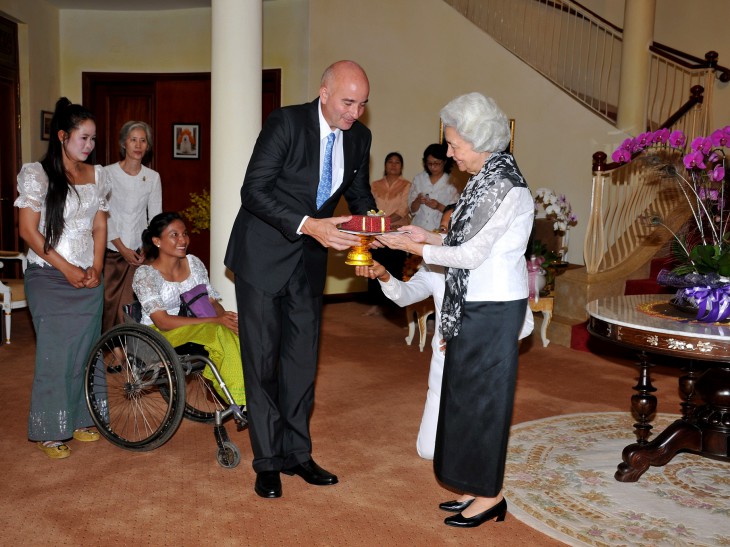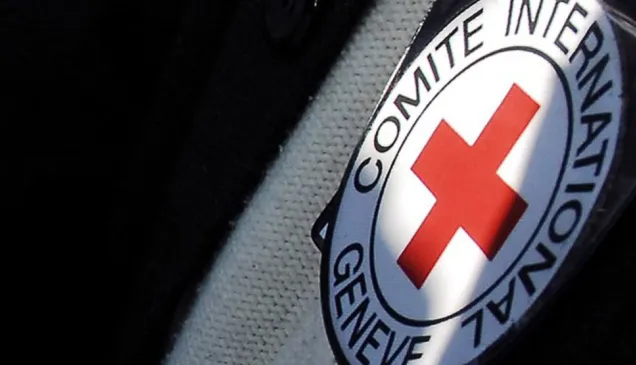Cambodia: The Queen Mother meets members of the women’s wheelchair basketball team

Her Majesty Norodom Monineath, the Queen Mother, and her late husband, King Sihanouk, have long supported the more vulnerable people in Cambodia, including the disabled. They had been particularly concerned with the problem of acceptance of the disabled by the wider community.
On 26 April, members of the Cambodian Women's Wheelchair Basketball team from Battambang, together with representatives of the ICRC, were granted an audience with the Queen Mother at the Royal Palace in Phnom Penh.
The delegation, led by Bart Vermeiren, head of the ICRC mission in Cambodia, discussed the various challenges facing the disabled, including the question of social acceptance. Her Majesty feared that injuries caused by unexploded ordnance and landmines, and increasingly by traffic accidents, would affect the country for at least the next 100 years. The captain of the team, Sieng Sokchan, told Her Majesty how she lost the use of her legs in an accident. "One should never give up hope", the Queen told Sokchan.

Cambodia. Queen Mother and Princess Arunrasmy with members of Battambang's Women's Wheelchair Basketball team together with ICRC representatives. CC BY-NC-ND/ICRC
Plans for a new roof
Sokchan then outlined plans to establish the Cambodian Wheelchair Basketball Federation with support from ICRC. The construction of a new roof for the basketball court at the ICRC's physical rehabilitation centre in Battambang was also discussed. Training has always been impossible during the hot season and disrupted during downpours in the rainy season, but a new roof would enable the team to practice all year round. The Queen Mother was keen to lend her support.
The audience was organized by Princess Norodom Arunrasmy, High Privy Council of His Majesty the King of Cambodia and a former Cambodian Ambassador to Malaysia. The Princess was first introduced to the Cambodian Women's Wheelchair Basketball team during an exhibition match against a Malaysian team at the ASEAN Disability Forum in 2015.

Bart Vermeiren, head of the ICRC mission in Cambodia, presents gifts to the Queen Mother. CC BY-NC-ND/ICRC
Supporting Cambodia's disabled
Cambodia has one of the highest number of disabled people in the world, with more than half a million living with disabilities. A marked increase in injuries sustained in road accidents has been a contributing factor following the rapid development of the country's infrastructure. Although the original objective of the ICRC was to support those directly affected by conflict, the organization has since expanded its activities to cover common orthopaedic and neurological problems.
The ICRC's Physical Rehabilitation Project was established in 1991 with centres in the provincial capitals of Battambang and Kompong Speu, as well as the Phnom Penh Orthopaedic Component Factory. The organization not only provides prostheses, but also focuses on strengthening physical rehabilitation and ensuring the sustainability of the services provided. The project is a collaborative effort with the Cambodian government's Ministry of Social Affairs, Veterans and Youth Rehabilitation.
Battambang and Kompong Speu rehabilitation centres provide prostheses and other mobility aids and physical therapy to the disabled free of charge. The centres also offer maintenance and repair services to adjust or renew devices like wheelchairs. The ICRC is also involved in social inclusion activities such as educational and vocational training to people with disabilities.



